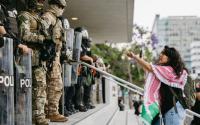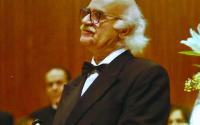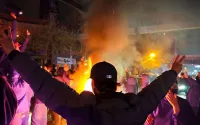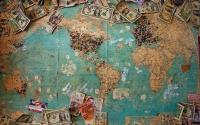 Israel is thought to have about 200 nuclear warheads at Dimona |
Papers in the British National Archives show a deal was done to export 20 tonnes of heavy water for about £1.5m.
This was vital for plutonium production at the top-secret Dimona nuclear reactor in Israel's Negev desert.
No "peaceful use only" condition was placed on its use. Officials said imposing one would be "over zealous".
Ministers in Harold Macmillan's government were unaware of the deal. It was also kept secret from the US.
In one of the documents Foreign Office official Donald Cape concluded: "On the whole I would prefer not to mention this to the Americans."
Washington had refused to supply heavy water to Israel without a guarantee it would only be used for peaceful means.
US President John F Kennedy's defence secretary from 1961, Robert McNamara, told BBC News he was "astonished" by the cover-up.
"It is very surprising to me we were not told because we shared information about the nuclear bomb very closely with the British.
"The fact Israel was trying to develop a nuclear bomb should not have come as any surprise.
"But that Britain should have supplied it with heavy water was indeed a surprise to me."
The heavy water - surplus from a consignment bought from Norway in 1956 - was shipped from a British port to Israel.
Officials presented it as a deal between Norway and Israel.
Former Conservative defence and foreign office minister Lord Gilmour told BBC News the revelations were "quite extraordinary".
The civil servants involved must have known Israel would use the heavy water to develop a nuclear bomb, he added.
"They just seemed to be concerned with making a bit of money."
By the time Israel asked the UK for more heavy water in 1961, the existence of the Dimona reactor and a probable nuclear weapons programme had been exposed by the Daily Express newspaper, leading the Foreign Office to block the sale, the papers show.
Sir Hugh Stephenson wrote: "I am quite sure we should not agree to this sale.
"The Israeli project is much too live an issue for us to get mixed up in it again."
While Israel has not publicly conducted a nuclear test and does not admit or deny having nuclear weapons, it has not signed the Nuclear Non-proliferation Treaty.
This means the International Atomic Energy Agency does not have the power to inspect Israeli nuclear facilities.
The Israelis say that will not change as long as they feel threatened by countries in the Middle East.






